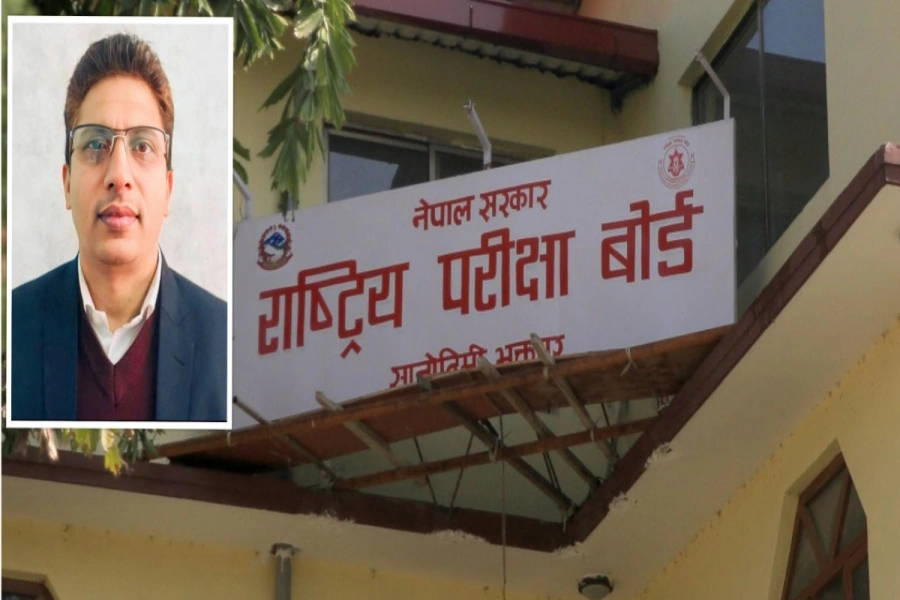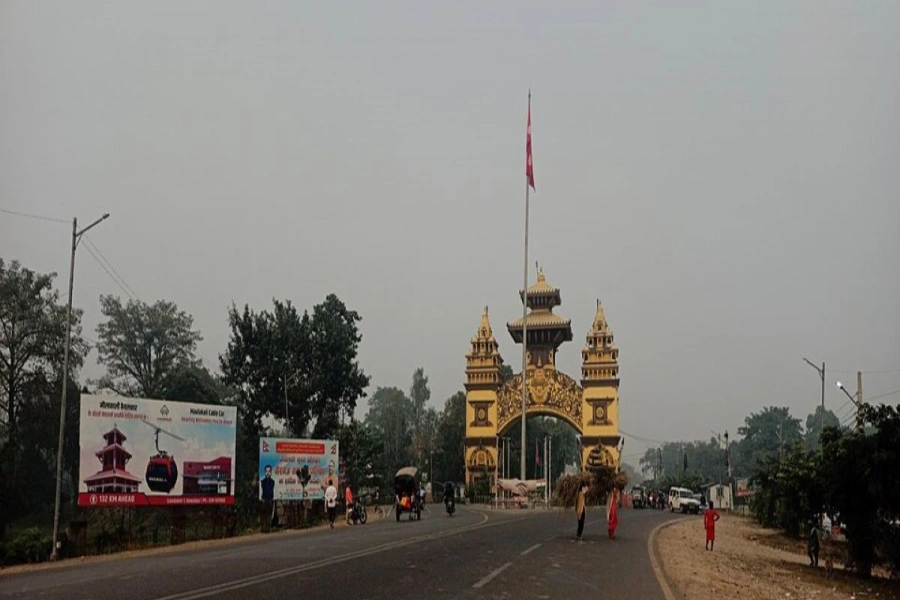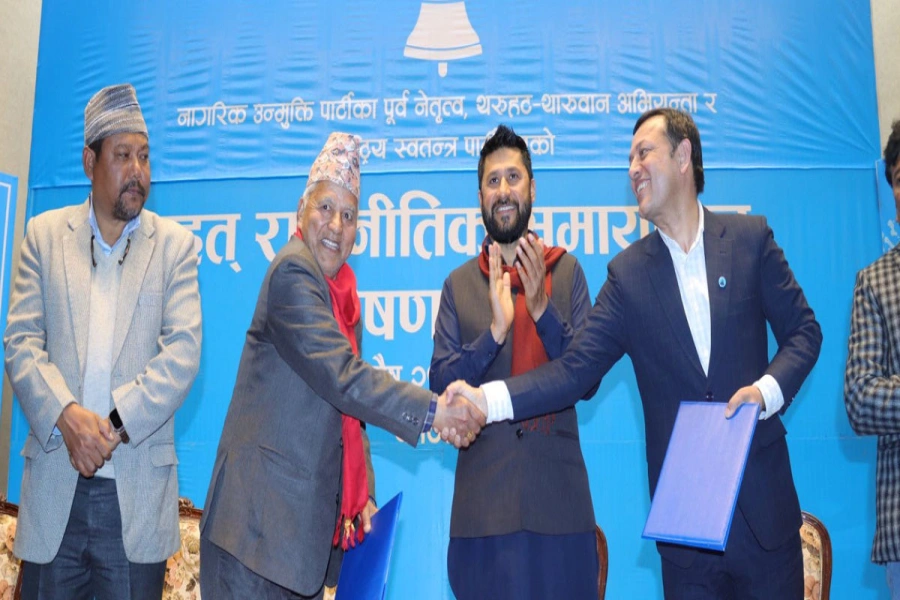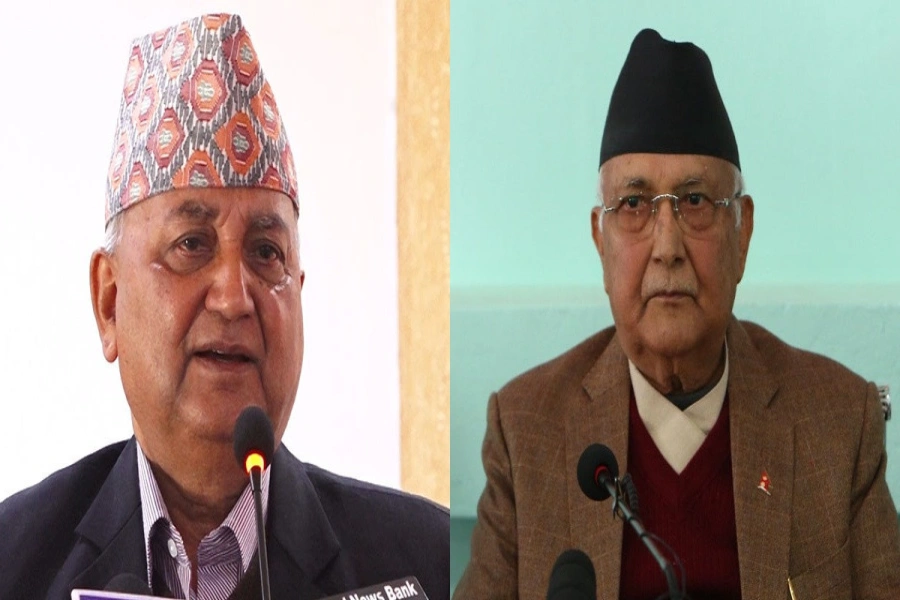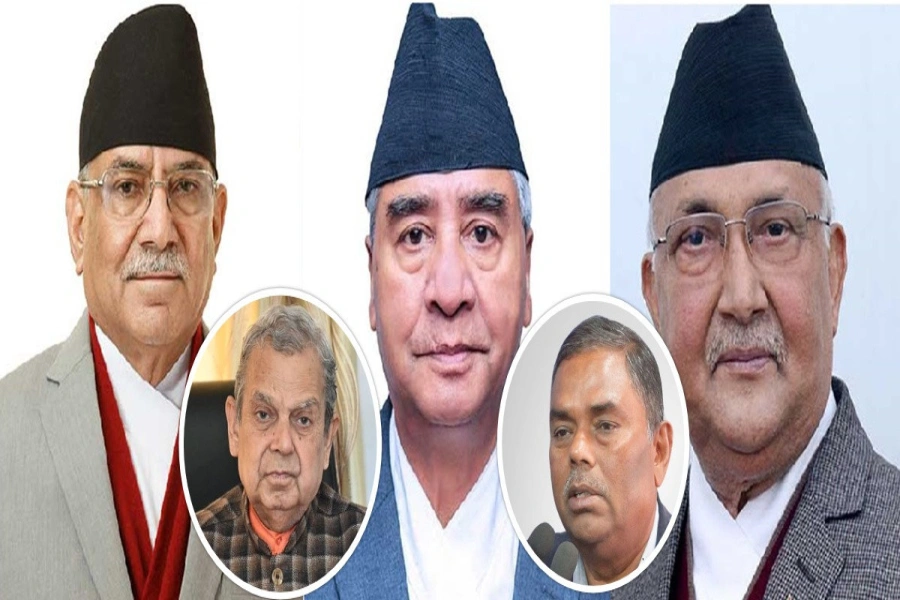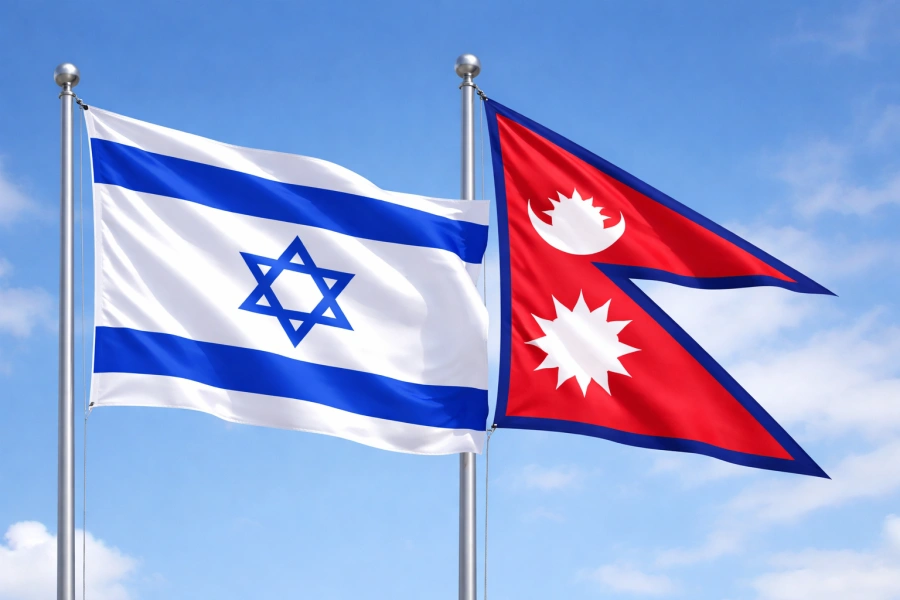It is an irony that Teej, a festival of women, ultimately revolves around a man. This narrative must change
These past few days, Facebook has been colored with women adorned in bright saris to mark Teej, a widely celebrated festival in the Hindu hill communities. One also comes across a sizeable number of criticisms of the festival on the social media platform, mostly from men but also from women. In recent years, the festival is celebrated with much grandeur by women residing not just in the country but also abroad. Traditionally the festival is a three-day celebration: the first day is the day of feasting, the second of fasting and on the third day a ritualistic bathing takes place. However, as customary of festivals and traditions that mirror society, the festival has seen much change primarily in the duration of the celebration and ways it is celebrated in. The most important aspect of the festival that must change, nonetheless, seems to have adamantly stuck: Its narrative.
Teej is one of the most vibrant and empowering festivals for women of the communities that celebrate it. It is a woman’s festival of food, colorful dresses, accessories, singing and dancing. It is also one of the only occasions where women in our communities occupy and claim ownership of public spaces so openly and visibly. If one visits the Pashupatinath temple on the day of fasting, one can see women colored in red and green take over the streets dancing and singing. Women in our society are not supposed to be “loitering” in public spaces. Women who are on the streets need to have a purpose: they need to be coming from somewhere or going somewhere. Women’s space is undoubtedly indoors, whether it be at work or at home. This day offers a day off work at office and at home. The festival where women in hundreds take to the streets with no specific purpose but just to sing and dance and be with one another is a wonderful opportunity to reclaim public spaces, where we are not normally supposed to be. We exist, we are loud and we like to have fun! This is certainly an opportunity for empowerment.
Teej takes

Changing narrative
However, it is a sad fact that the festival’s narrative is limiting. Many young, educated, independent women are choosing to boycott the festival and criticize it for this very reason. Teej, on the one hand, is a wonderful empowering celebration and on the other is a day where married women fast for the longevity of their husbands and unmarried women fast in order to get good husbands. On the day of fasting, women celebrate Lord Shiva and idolize Parvati, an ideal of dedication and unfaltering commitment to her husband, who to say the least was a cheater. It is an irony that a festival of women ultimately revolves around a man. This narrative must change. Instead of fasting without eating anything or even drinking water and risking one’s health for one’s husband, moderate fasting for one’s own health might be the direction that we should look toward. In turn of a festival of husbands, can Teej not be redefined as a festival to celebrate womanhood where we fast for good health, and sing and dance together to celebrate our awesomeness and solidarity?
The other problematic narrative is of the day of ritualistic bathing where women bathe with herbs to wash away the sins incurred from menstruation. First, menstruation is certainly not sinful but a symbol of our fertility and ability to create life. So why not celebrate the third day as a symbol of our contribution to human existence? Why not celebrate our fertility for all its glory? The day of ritualistic bathing can be a day of retrospection of our wrongdoings in the entire year and a commitment to become better individuals rejoicing in our fertility, cleaned of our past evils in body and spirit.
One of the most criticized aspects of the festival is the feasting. Traditionally celebrated only one day before the day of fasting where a daughter used to be invited to her parent’s house for a feast, it is now celebrated almost over a month. This change is only natural as women now feast not just with parents but also with friends, other relatives and colleagues. Since there are so many groups of people to feast with, naturally it is going to take longer than a day. This has been criticized as frivolous spending. Research shows that women mostly spend money on their families. Is it really frivolous to throw a party for one’s friends and families one day of the year?
Women who have had alcohol at their feasts have been some of the most highly criticized. Is it such a big deal to serve alcohol at a party? Alcohol has come to become a very important part of most of our parties and gatherings. In other festivals such as Dashain and Tihar, a lot of alcohol is consumed, mostly by men. That has never been such a big deal. Or is it okay to have alcohol at parties and festivals as long as the women are not drinking and are in the kitchen preparing food? We have a significant number of men who drink every day, every weekend or at least every party. Perhaps our efforts should be focused toward bringing into discourse the alcoholism among men rampant in our society and not toward calling out women who have a few drinks at a feast.
Away with bad
Certainly not all things are perfect and this festival also has its own set of problems. Excessive spending can definitely be an issue and it is so not just of Teej but of almost every Hindu festival—Dashain and Tihar are the biggest culprits. Similarly, excessive consumption of alcohol is absolutely not to be encouraged. Another concern is the extravagant display of jewelry, which exacerbates class divides and can put a dent on finances. Perhaps the most pressing of concerns is the health risk that many women put themselves in through extreme fasting. Some even choose not to take prescribed medicines. Incidents of women whisked away in ambulances from fainting due to low blood pressure and weakness are very common on the day of fasting.
Teej is an important and empowering festival. We should absolutely continue celebrating it in our own way with our friends and family with much singing and dancing. It is our day. It is, nevertheless, time to rediscover what it means for us and to redefine it in our own ways. While watching out for overspending and health, I say let’s celebrate it for as long as we want and with as much dancing as we want.
The author is a student of Master’s degree in Gender Analysis in International Development at the University of East Anglia, UK
monikaniroula94@gmail.com




